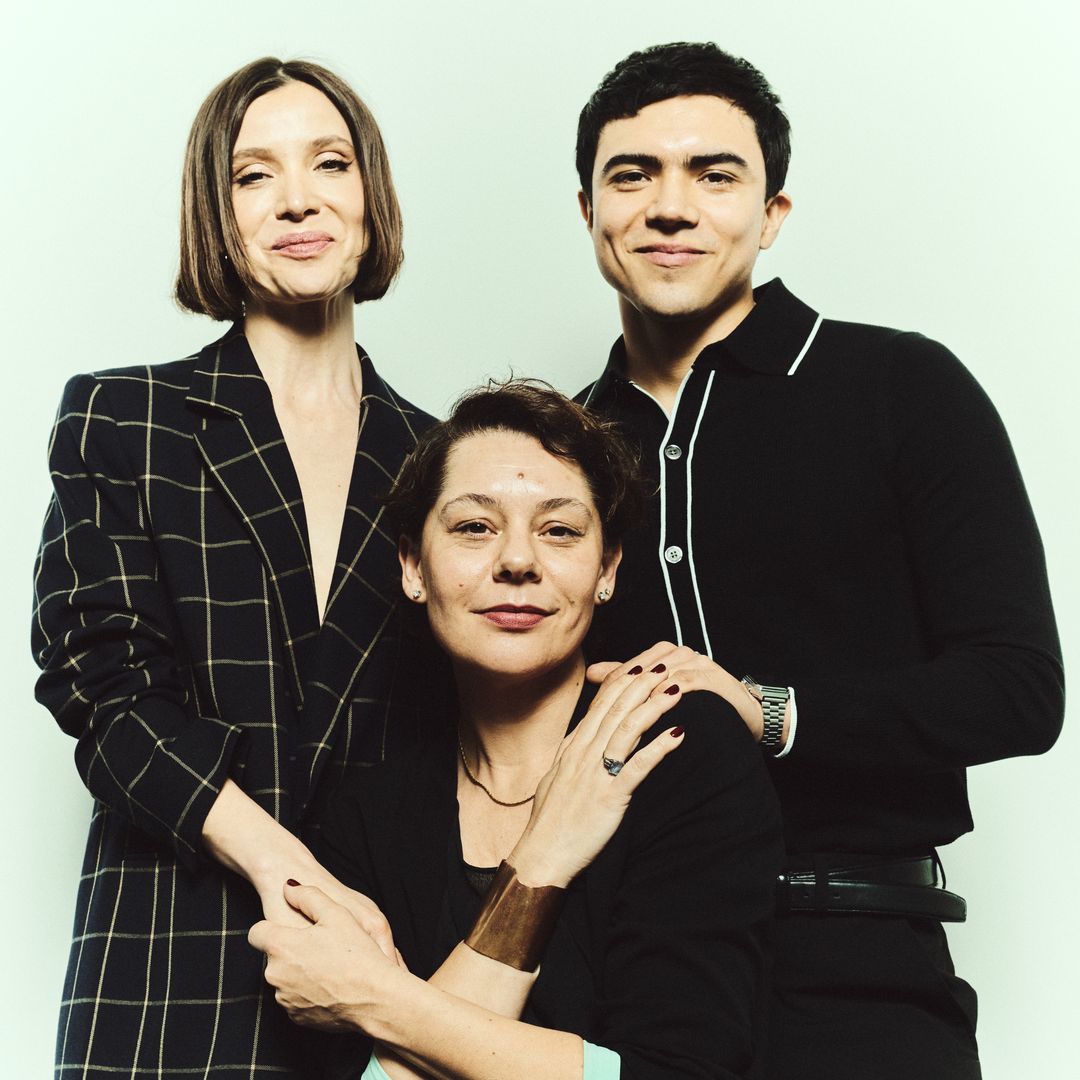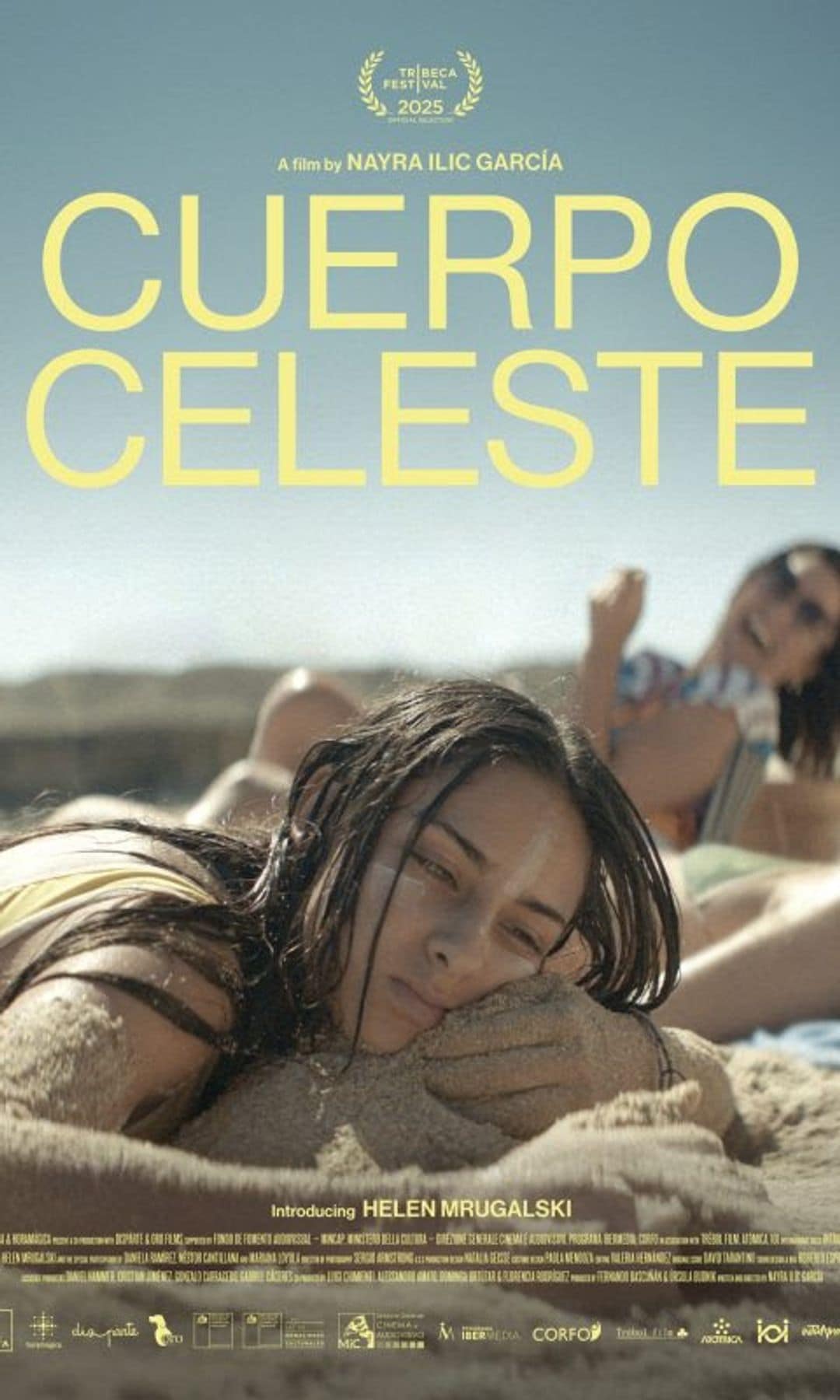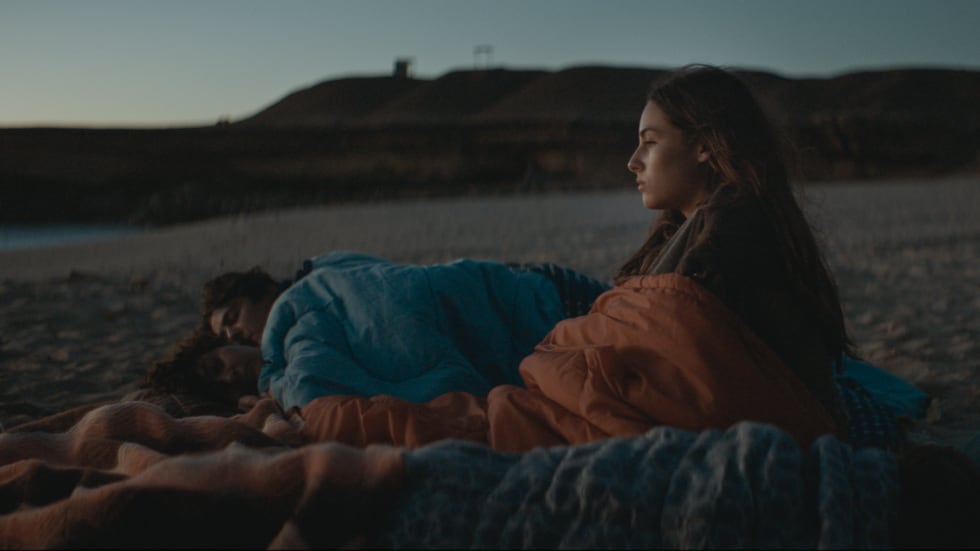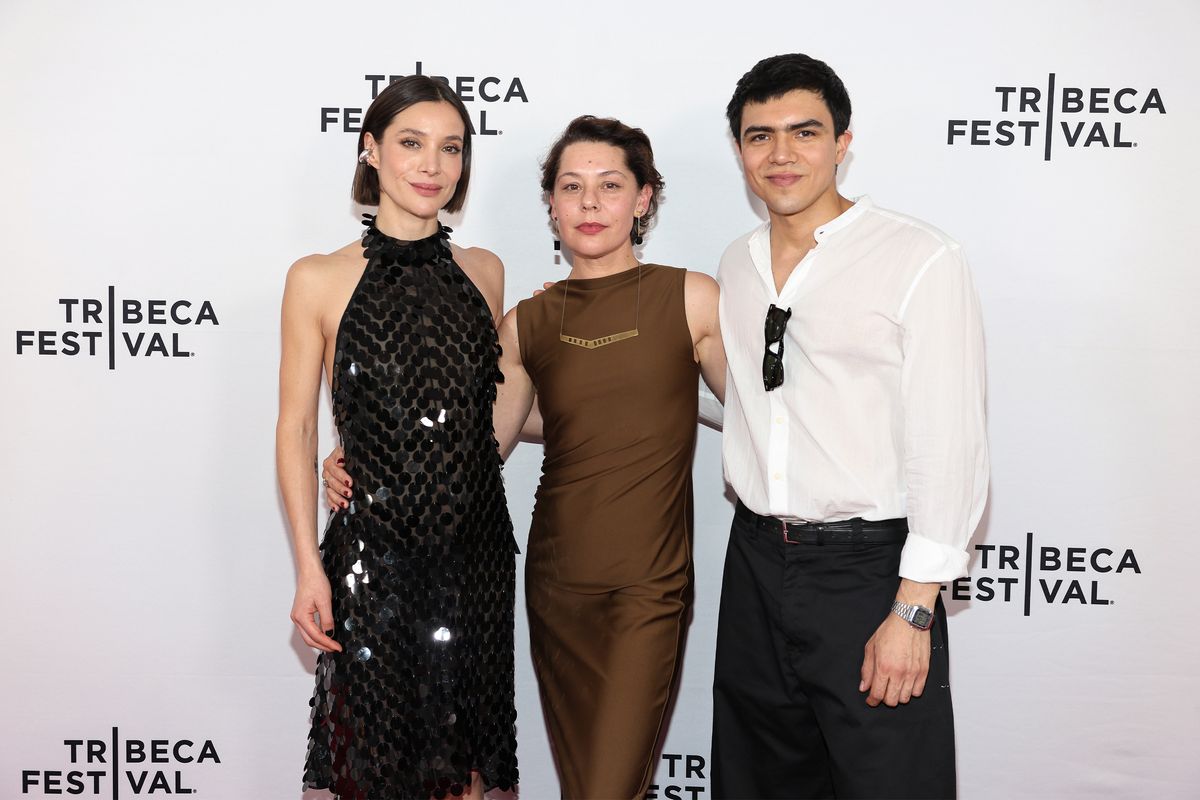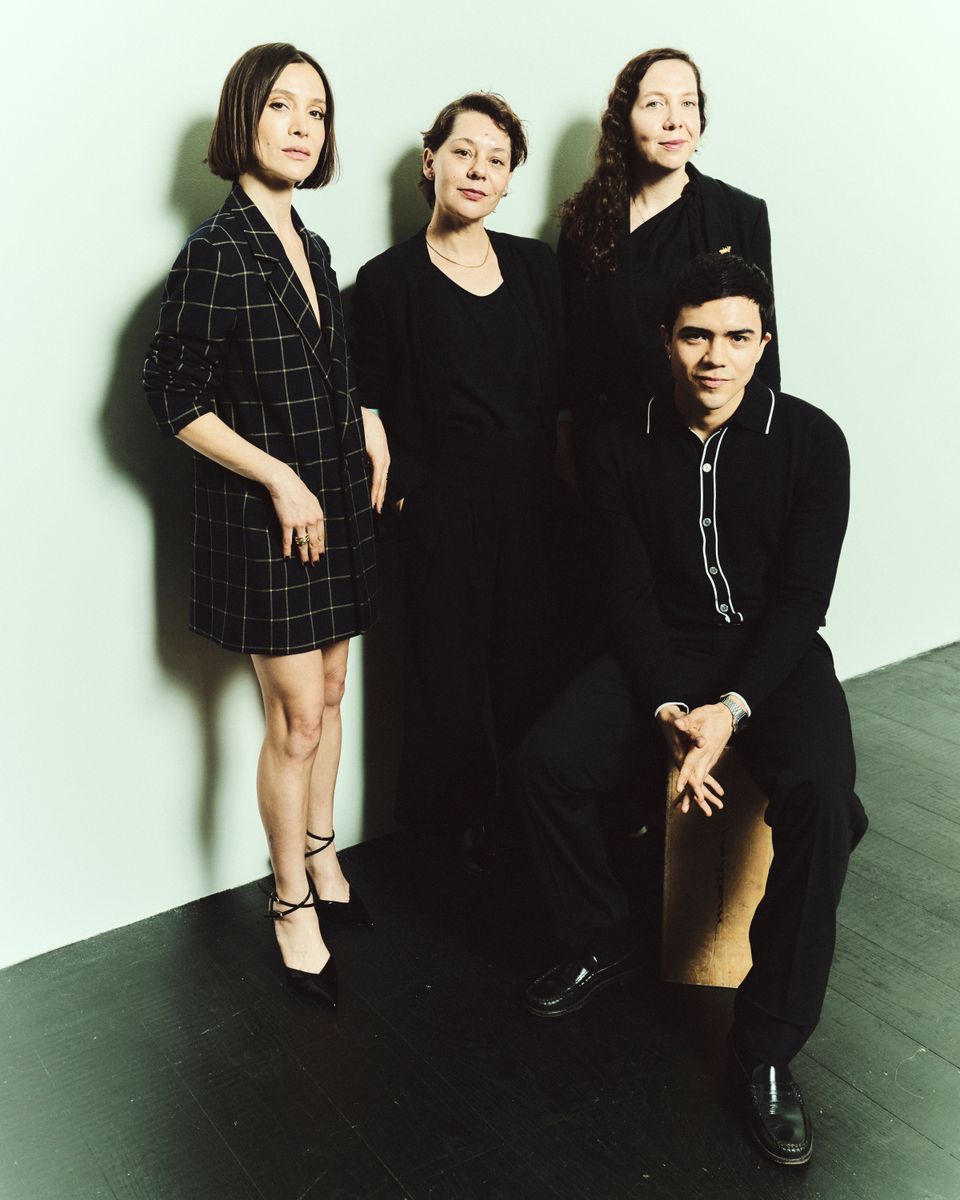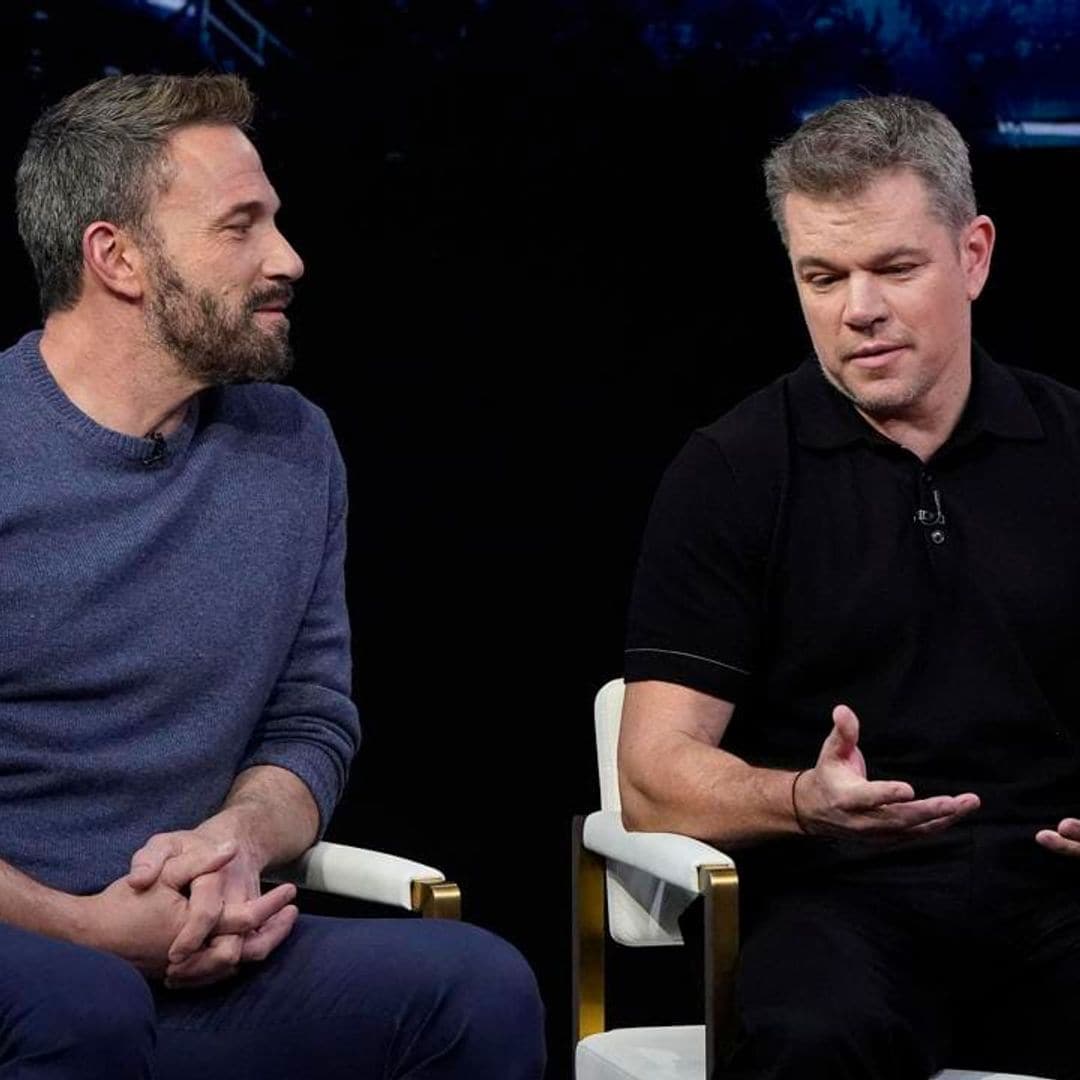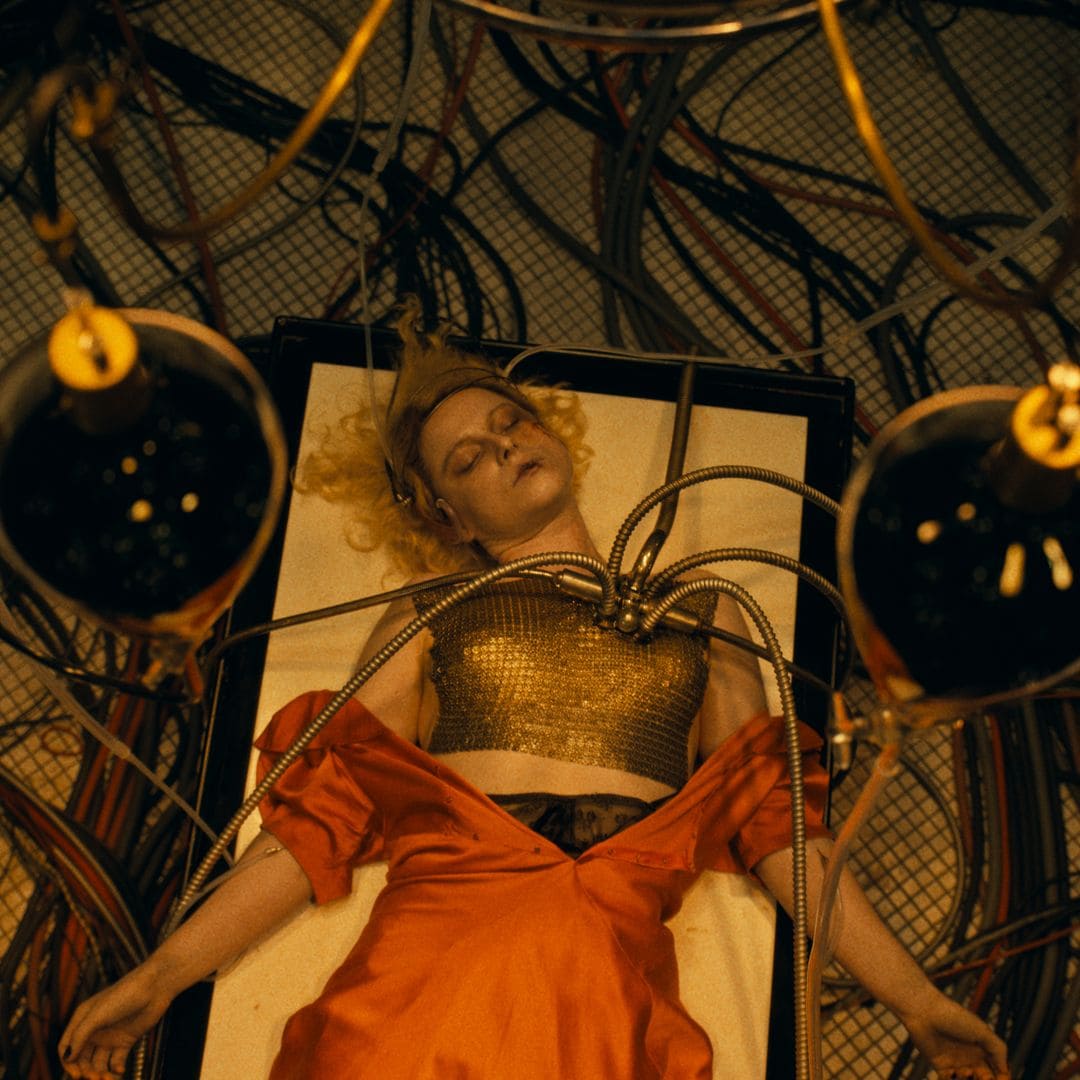Like most films, Cuerpo Celeste took blood, sweat, and tears to come to fruition. The project, written and directed by Nayra Ilic Garcia, is a story that's simple in theory, yet explodes into a much larger scope. The title translates to Celestial Body, a clear reference to the film's protagonist, Celeste (Helen Mrugalski), a teenager growing up in Chile in the '90s, reckoning with the sudden death of her father as her country transitions out of Augusto Pinochet's brutal dictatorship. But the title is also a reference to a larger world; while the story is a coming-of-age, it relishes the chance to embrace a broader perspective and the beauty of the natural world, with the camera lingering on rocks and land formations with the eye of an archaeologist.
It’s one of the Latin American offerings presented this year at Tribeca Festival and was met with acclaim, taking the Special Jury Mention for International Narrative Feature, with the jury noting Mrugalski’s performance and the film’s delicate balance between the political and personal.
In a chat with Garcia and Daniela Ramirez, one of the film’s lead actresses, the women discussed their journeys with the project, the logistics of working with a teen actor, and how a coming-of-age story is a process that’s similar to a democratic transition.
"Latin American cinema requires international cooperation and co-production," said Garcia. She shared that she had the chance to take her project to the Torino Film Lab, acquiring the support of the Italian production company dispàrte. "The film started to grow and we acquired the budget to shoot in the Northern region of Chile, in Atacama.” The location is a character in itself, featuring beaches, small shops, and the gorgeous desert. It's a place with a personal resonance for Garcia, who grew up there and knows it intimately, granting the audience a chance to enter this alien world with her guiding hand.
"Humans will pass, and all that will be left is nature. We're just passing through.”
Celeste and her mother, Consuelo, are the two central figures in the drama, even though more characters come in and out of the story. Ramirez, a seasoned Chilean actress with credits in theater, TV, and films, plays Consuelo with a brittle and pained performance. While Celeste is at times moody and aloof, her mother is a peeled nerve. Ramirez recalls meeting with Garcia and feeling an instant connection.
"We didn't know each other," she said. "We met at a coffee shop for a 15-minute appointment that morphed into a 2-hour meeting." She approached the meeting like any other acting job, and found herself surprised by the scope of the film and what Garcia was trying to accomplish. "Once I read the script, I said 'Wow.' This is deep, powerful, substantial. It's a delicate film too."
Ramirez notes how unique it is for the film to have been written and directed by a woman, and the fact that it showcases women’s voices, a rarity in cinema, especially from regions like Latin America and Chile.
Celeste is the lynchpin of the film, occupying almost every frame, with the story tinted through her perspective. If something is off with the character or the performance, the movie falls apart. Casting the role was a difficult process that took a year to complete. Ramirez worked hard to establish a relationship with Mrugalski and to develop a bond that was organic and could have all of the shadings of a mother-daughter dynamic. The two had played mother and daughter on a TV project in the past, when Mrugalski was a little girl.
"I tried to take care of that complicity we developed organically. I wanted that to be genuine. That's what I tried most to care for and protect," said Ramirez, noting that she's also a mother and has experience dealing with teenagers.
In the case of Garcia, working with Mrugalski and directing her required an investment of her time. She knew that she first needed to have the child before casting the rest of the actors, so once Mrugalski was cast, the two formed a relationship outside of their working dynamic. They went to movies together, attended each other's events and rehearsals, allowing for their trust to build naturally.
"It required a dynamic space where we all worked for her, so that she was contained, and then in the moment that she heard action, she was free to explore and play within the lines we had drawn for her," said Garcia. Once the rest of the cast was hired, everything fell into place. "All of that method work paid off," said Ramirez.
Giving the story a larger-than-life scope
The film's concerns with nature and what's earthly are awe-inspiring. Throughout “Cuerpo Celeste’s” runtime, there are scenes set on the beach, at dig sites, and natural events like an earthquake and an eclipse make up for some of its story beats. "Why that focus?" I ask.
"Humans will pass, and all that will be left is nature. We're all just passing through," says Garcia. "Understanding space as something or somewhere that has been around since before there was this conversation, since before there was this movie, and confronting that it will remain there long after we’re gone is something that moves me deeply." It’s a fitting answer for a story about reckoning with grief, whether it’s personal, through the death of a parent, or on a macro level, through a country’s shifting politics.
In one of the most striking moments in our conversation, Garcia compared adolescence to the political transition from a dictatorship to a democracy. "Adolescence is full of contradictions," she says. "When the veil was lifted off the dictatorship in Chile and we could see our faces, we understood that, while it was joyful, the moment came hand in hand with horror. We couldn't stop seeing that horror."
As the interview wound down, I deviated from my list of questions and focused on something that made me curious as a writer and person who's interested in the way stories work. “What came first, the idea for the coming of age story or a reflection of Chile's dictatorship?"
"Both," she said with a smile. "It's not one or the other."
